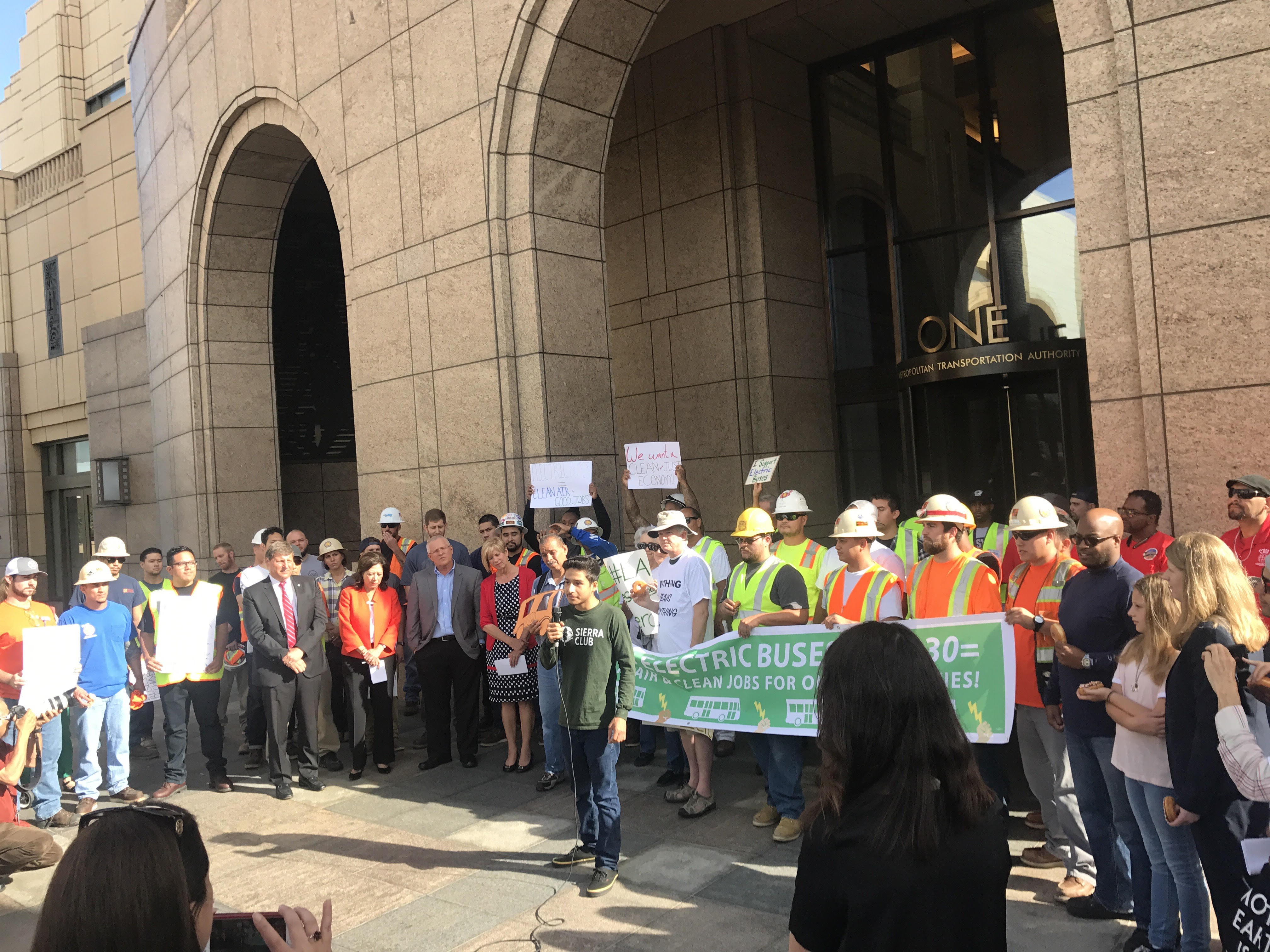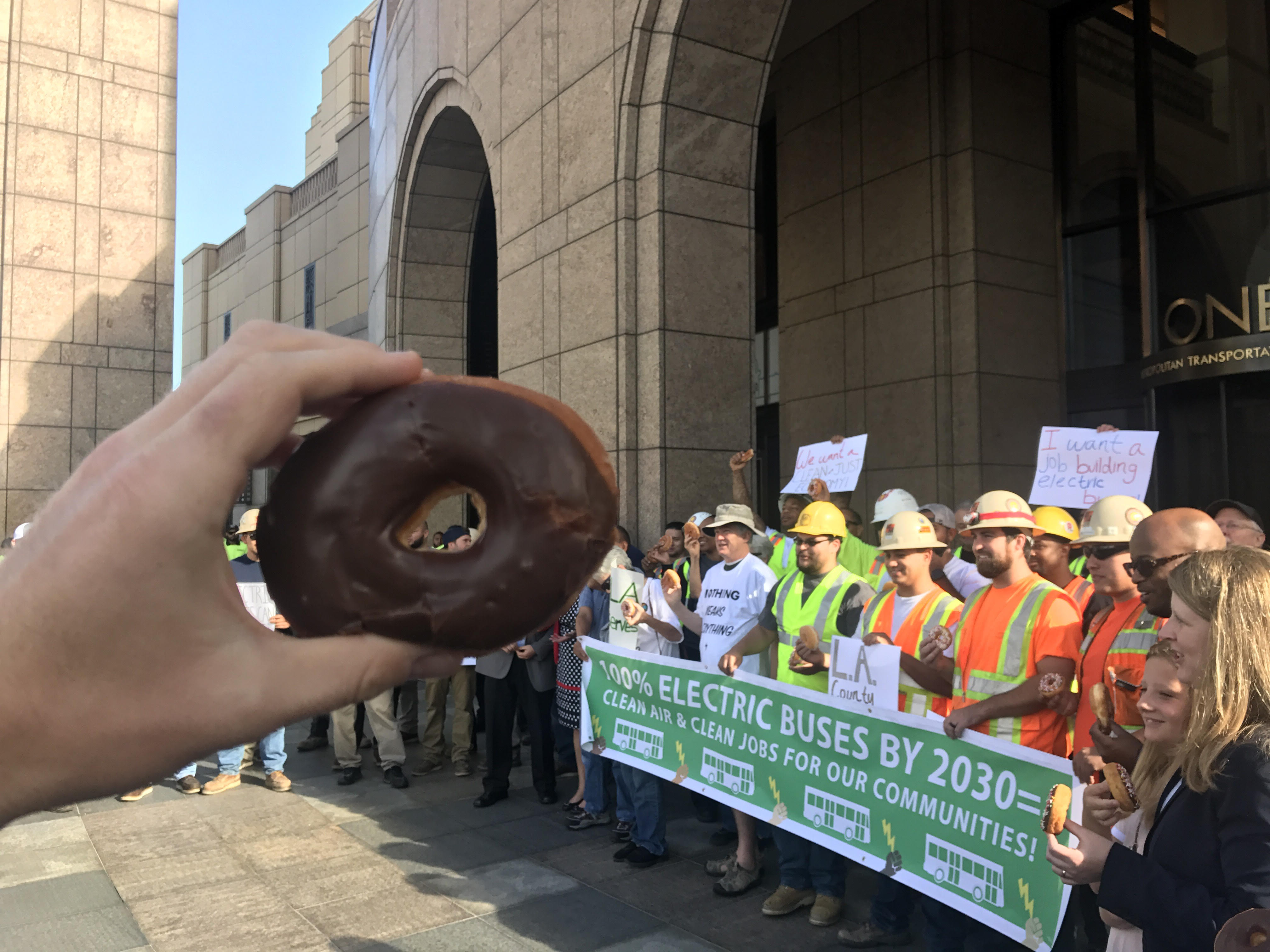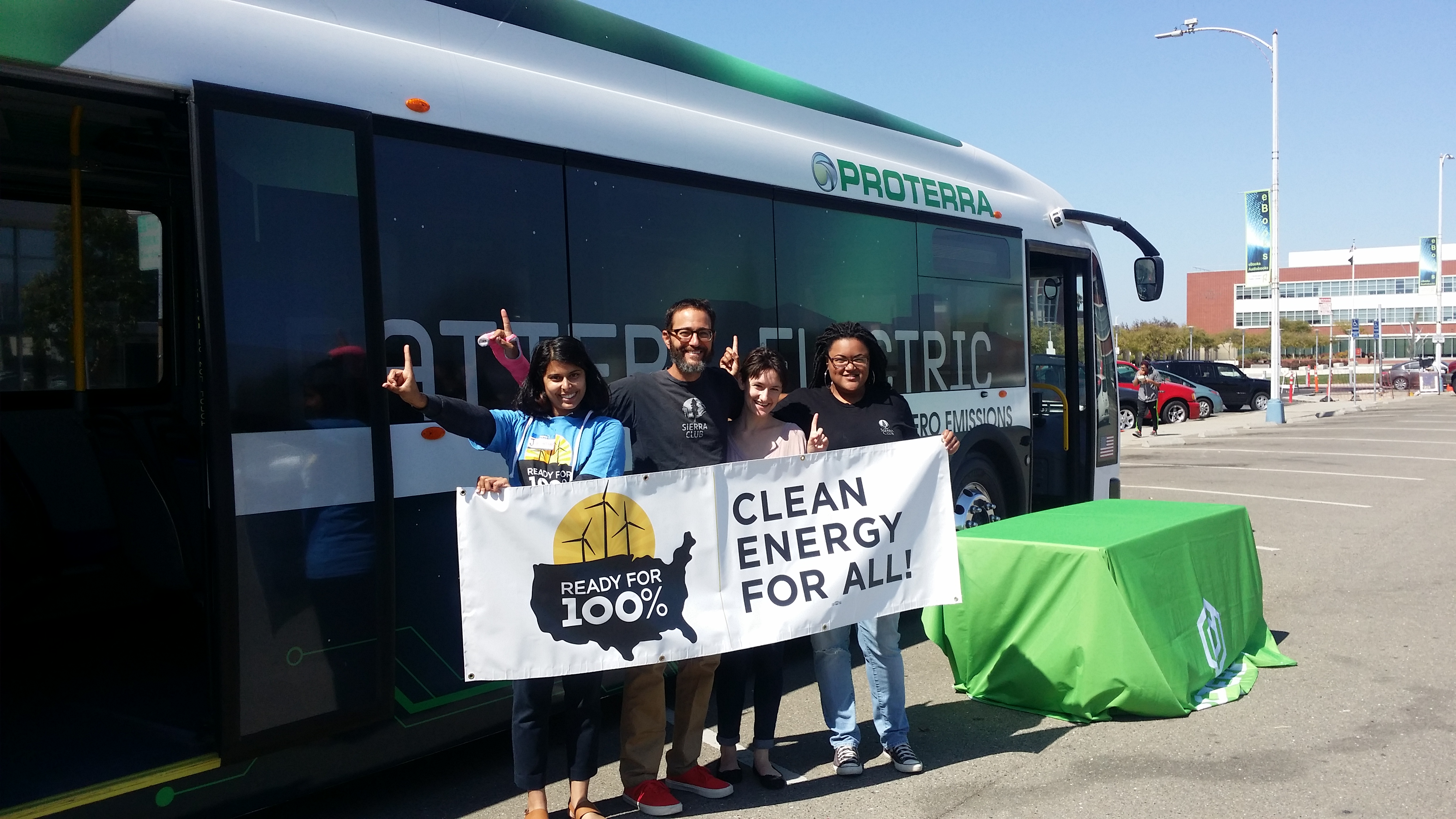Last week, L.A. Metro, the second largest transit agency in the United States, voted to ensure that all of its more than 2,200 buses will run on battery electric power by the year 2030. This is a huge ground-breaking decision. The city of Los Angeles, its mayor, and its transit board have thrown down the gauntlet; if they can make this commitment, so too can transit agencies in every other U.S. city, large and small.
Angelenos have been plagued by dangerous air pollution for decades, and low-income residents and communities of color have borne the brunt of this pollution, including from dirty diesel and compressed natural gas (CNG) buses. This argument was made eloquently by mother and community member, Nancy White Horse, who published this op-ed last week about how children like her daughter who suffer from asthma deserve cleaner city buses, as well as Milton Paez, a high school student who rides the bus daily and suffers from asthma, who published this op-ed.

Milton speaking at a press conference before the vote.
L.A. Metro is by far the largest public transit agency in the U.S. to make a 100 percent electric bus commitment, but it’s not the first. Foothill Transit, which runs more than 300 buses from Los Angeles to San Bernardino, and Antelope Valley Transit, which operates more than 85 buses in northern L.A. county, voted in recent years to fully electrify their bus fleets. And King County Metro, which operates in the Seattle area, has committed to add at least 120 zero emission buses to its fleet in the coming years.
Other cities and transit agencies lag far behind, a topic I covered in a recent post. New York, the largest US city, for example, has the largest transit agency in the country. However, its Metro Transit Authority (MTA) has only committed to a 10 electric bus pilot, out of its fleet of more than 5,800 buses. New York’s paltry pilot, despite pressure from local business leaders, environmental groups, and city councilors, matches the same number of electric buses already committed by Eugene, Oregon, a city of less than two percent of New York City’s population size.
Cities like Atlanta, Georgia, Boston, Massachusetts, and St. Petersburg, Florida have also experimented with small electric bus programs. Philadelphia recently committed to 25 electric buses, and Miami has committed to 33, eventually 75, zero emission buses. But these cities and others can lead the way to cleaner air and a safer climate with much bolder commitments.
The L.A. Metro vote came as a result of a great deal of time and leadership by many, including the Los Angeles mayor Eric Garcetti and various city council and L.A. Metro board members who recognized the need for Los Angeles to move beyond dirty buses. The natural gas industry pushed hard for natural gas, rather than battery electric or fuel cell buses. Apparently, their lobbyists even sunk as low as following around interns from our coalition and urging them to stop asking policymakers to sign a letter in support of the transition to electric buses.
But the forces for cleaner air and a safer planet won the day. The L.A. County Electric Bus Coalition, which includes environmental groups such as Sierra Club and labor groups such as IBEW and Jobs to Move America, campaigned with vigor; they met with L.A. Metro board members, mobilized community members concerned about air pollution to show up to board hearings and rallies, secured media coverage, released videos about the benefits of zero emission buses, including, individual job opportunities, manufacturing plants communities can be proud of, and the advancement of green energy. They even waged a social media campaign reminding community leaders that natural gas buses were #So90s, and that #LADeservesZero.

Zero emission donuts at the press conference before the vote.
The coalition also pushed successfully to ensure that the adopted motion includes language to prioritize rollout in environmental justice communities, encourages bus manufacturers to be better community partners, and power the buses with clean energy. If L.A. Metro indeed strengthens and utilizes policies such as the U.S. Employment Plan, this transition will create good local jobs and build long-term careers.
The coalition’s advocacy paid off, and we’re eager to replicate it in other cities.
In fact, the U.S. Conference of Mayors recently passed a resolution committing to work toward 100 percent clean energy, including vehicle electrification. This should include 100 percent zero emission buses. Billions of dollars in Volkswagen settlement funds are now on the table for clean transportation investments. This, too, should include zero emission buses (both transit and school buses).

Sierra Club supporters in front of a zero emission bus in Richmond, CA at a 2016 National Drive Electric Week event.
Everyone deserves access to clean transportation choices, whether that be through zero emission transit buses, safe bike lanes, transit oriented development, electric cars, or federal fuel economy standards that require vehicle manufacturers to provide consumers with more efficient cars and trucks overall. Our air quality and climate are in danger, and the need for bold clean energy solutions is everywhere. It is why the Sierra Club recently brought our national transportation initiatives into a bigger, more coordinated Clean Transportation for All Campaign. Los Angeles is just one stop on our road map to cleaner transportation.
Sierra Club intern Alexandra Dobell contributed to this article.